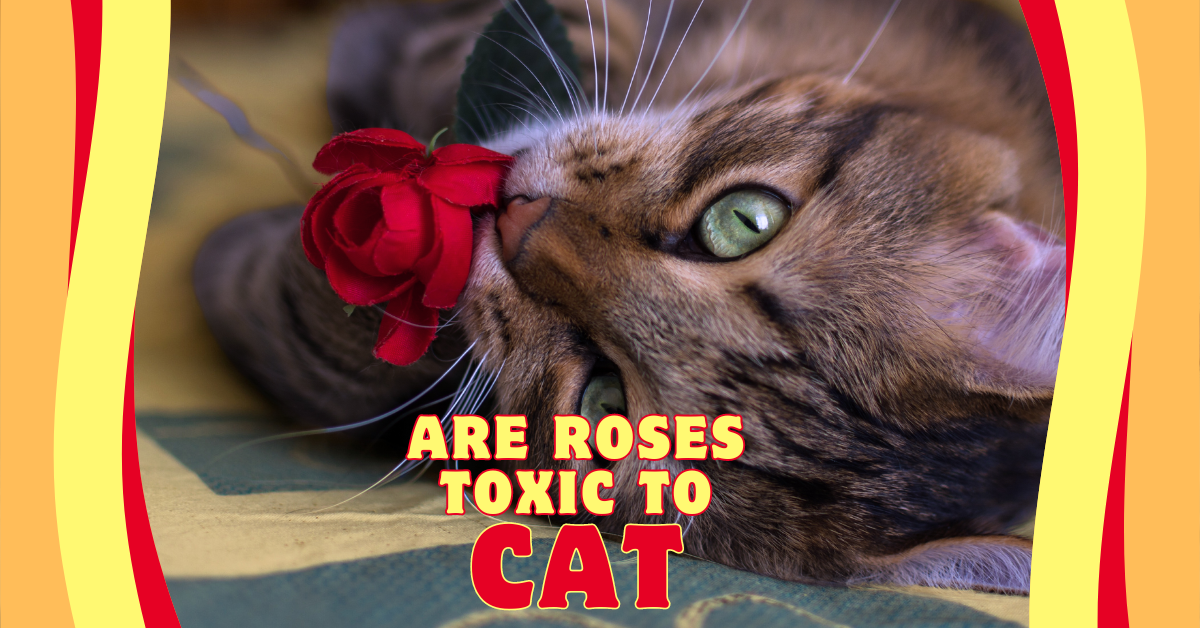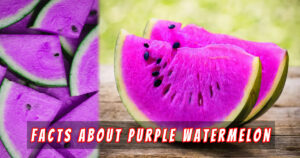Introduction
Many pet owners enjoy keeping fresh flowers at home, and roses are a popular choice due to their beauty and fragrance. However, as a cat owner, you may wonder, “Are roses toxic to cats?” While roses are often considered a safe plant for humans, it’s essential to understand the potential risks they pose to your feline friend.
In this guide, we’ll explore whether roses are toxic to cats, the symptoms to watch for if your cat chews on them, and practical tips for keeping your pet safe around flowers. Whether you have roses in your garden or as part of a bouquet in your home, it’s crucial to understand are roses toxic to cats and how they can affect your cat’s health. We’ll also cover alternative pet-friendly plants and what to do if your cat accidentally eats roses.
1. Are Roses Toxic to Cats? Understanding the Facts
The good news is that roses are not considered toxic to cats. Unlike many other plants, roses themselves are relatively safe, and ingestion of rose petals or leaves typically does not result in serious harm to your feline companion. However, while roses are generally safe, there are still some factors to consider when thinking about are roses toxic to cats.
Firstly, the thorns on rose stems can pose a physical risk to cats. Cats that chew or play with rose stems may suffer from cuts in their mouths, paws, or elsewhere on their bodies. Secondly, while the rose plant itself is non-toxic, many store-bought roses are treated with pesticides and fertilizers that can be harmful to cats if ingested. Therefore, even though roses themselves are not poisonous, the chemicals used on them can cause adverse reactions.
In summary, while you don’t need to panic if your cat nibbles on a rose petal, it’s important to ensure that any roses in your home are free from harmful chemicals. If you suspect that your roses have been treated with pesticides or fertilizers, keep them out of reach of your pets to avoid any potential health issues.
2. What Happens If a Cat Eats Roses? Symptoms to Watch For
Although roses are not toxic to cats, ingestion can still lead to some health issues, particularly if your cat consumes parts of the flower or plant treated with chemicals. This raises the question: are roses toxic to cats? While they aren’t, it’s important to be vigilant. Here are some common symptoms to watch for if your cat eats roses:
- Vomiting: If a cat ingests a large quantity of rose petals or leaves, it may cause gastrointestinal irritation, leading to vomiting. This is usually mild but should be monitored.
- Diarrhea: Similarly, eating parts of a rose plant can cause diarrhea, especially if your cat’s digestive system is sensitive to the rough texture of leaves and stems.
- Mouth Irritation: While the rose petals are soft, the thorns on the stem can cause cuts or irritation inside your cat’s mouth. This can lead to drooling or bleeding.
- Lethargy: If your cat is exposed to harmful pesticides or fertilizers, you might notice lethargy or general weakness as a result of mild poisoning.
- Abdominal Pain: Signs of discomfort, such as meowing more than usual or not wanting to be touched, can indicate that your cat has an upset stomach after eating roses.
If you notice any of these symptoms, keep a close eye on your cat’s behavior. In most cases, mild symptoms will resolve on their own without medical intervention. However, if your cat’s symptoms persist or worsen, especially if pesticides or chemicals are involved, it’s best to consult a veterinarian immediately.
While roses are typically safe, the risk of mild discomfort or pesticide poisoning should not be ignored. Always err on the side of caution when it comes to your cat’s health.
3. Why Are Cats Attracted to Roses? Exploring the Behavior
If you’ve ever caught your cat chewing on a rose petal or sniffing around a bouquet, you may have wondered, why are cats attracted to roses? The answer lies in the natural curiosity of cats combined with certain sensory triggers that flowers like roses provide.
- Texture and Movement: Cats are often attracted to the texture of rose petals, which are soft and velvety. The gentle movement of petals in a breeze or when they’re touched can also stimulate a cat’s predatory instincts, encouraging them to paw, chew, or play with the flowers.
- Fragrance: The scent of roses can be enticing to cats. Some cats are drawn to the smell of flowers, particularly if the roses have a strong fragrance. Although this doesn’t necessarily mean they will eat the roses, their curiosity could lead them to investigate further.
- Curiosity and Playfulness: Cats are naturally curious animals, and anything new in their environment is bound to catch their attention. Whether it’s a fresh bouquet on the table or a rose bush in the garden, cats may feel the need to explore the new object through their senses, often leading to chewing or swatting.
- Boredom: If a cat is not adequately stimulated or lacks toys, they may turn to household plants and flowers for entertainment. This is especially common in indoor cats, who may view the plants as something new to investigate or play with.
Understanding why your cat is attracted to roses can help you manage their behavior and keep them away from potentially harmful plants. Providing alternative toys or creating a stimulating environment can reduce their interest in flowers and plants.
4. How to Keep Cats Away from Roses: Practical Tips
If your cat has a habit of nibbling on roses, it’s essential to take steps to keep them safe. Here are some practical tips for keeping cats away from roses in your home or garden:
- Place Roses Out of Reach: One of the easiest ways to keep cats away from roses is to place the flowers in areas where your cat cannot access them. High shelves, mantelpieces, or hanging baskets are good options for displaying roses without putting them within your cat’s reach.
- Use Cat Repellents: There are pet-safe sprays available that can be applied to plants to deter cats from chewing on them. Look for sprays that are designed to be non-toxic to both plants and animals. Citrus-based sprays are a common choice, as cats dislike the smell of citrus.
- Provide Cat-Safe Plants: If your cat loves chewing on plants, provide them with safe alternatives like cat grass or catnip. This can satisfy their need to nibble while keeping them away from your roses.
- Create Barriers: If your roses are in a garden or outdoor space, consider creating barriers to prevent your cat from accessing them. Fencing around flower beds or raised planters can be effective in keeping cats out.
- Distract with Toys: If your cat tends to chew on roses out of boredom, offer them interactive toys or puzzles to keep them entertained. This can help divert their attention away from your flowers.
By using these methods, you can enjoy having roses in your home or garden while ensuring your cat stays safe and healthy. Remember, even though roses are not toxic to cats, the thorns and chemicals used on them can still pose a danger.
5. Toxic Plants to Avoid if You Have Cats
While roses are generally safe for cats, many other common household and garden plants can be toxic. It’s essential to know which plants are dangerous and to keep them out of reach. Here are some of the most toxic plants to avoid if you have cats:
- Lilies: All parts of the lily plant are highly toxic to cats, and ingestion can lead to kidney failure. Even small amounts of lily pollen or water from a vase can cause serious harm.
- Tulips: The bulbs of tulips contain toxins that can cause vomiting, diarrhea, and lethargy if ingested by cats.
- Daffodils: Like tulips, daffodils contain toxins that can lead to gastrointestinal distress, including vomiting and abdominal pain.
- Aloe Vera: While aloe is known for its healing properties for humans, it is toxic to cats and can cause vomiting, diarrhea, and lethargy if consumed.
- Sago Palm: All parts of the sago palm are toxic to cats, but the seeds are especially dangerous. Ingestion can cause severe liver failure and even death.
If you have any of these plants in your home or garden, it’s crucial to keep them out of reach of your cat or, better yet, opt for cat-safe alternatives.
Curious about more unusual feline facts? Discover 5 Fascinating Facts About Chimera Cats You Won’t Believe here.
6. What to Do If Your Cat Eats Roses
If you discover that your cat has eaten roses, it’s essential to assess the situation carefully. Here’s what you should do:
- Check for Symptoms: First, monitor your cat for any signs of discomfort or distress. If your cat has consumed roses that were not treated with pesticides, they may experience mild symptoms like vomiting or diarrhea, which usually resolve on their own.
- Examine the Rose Plant: Check if your cat has chewed on the thorns, which can cause injuries to their mouth, paws, or digestive tract. If you notice any bleeding or signs of pain, contact your vet immediately.
- Consult a Veterinarian: If your roses were treated with pesticides or your cat is displaying more severe symptoms such as lethargy, drooling, or trouble breathing, consult your veterinarian right away. Bring a sample of the rose or packaging if possible, so your vet can better assess the potential exposure to toxins.
- Provide Water: Encourage your cat to drink water to help flush any potential toxins from their system. If your cat refuses to drink or continues to display symptoms, seek veterinary care immediately.
In most cases, a cat eating a small amount of rose petals is not dangerous, but it’s always better to err on the side of caution, especially if you’re unsure about the presence of pesticides.
Is your cat’s diet making you question their allergies? Discover more about common allergens and how to keep your furry companion safe by diving into our expert insights on whether coconut oil could be an allergen for cats here.
7. Are There Cat-Safe Alternatives to Roses? Choosing Pet-Friendly Flowers
If you love having flowers in your home but want to ensure they’re safe for your cat, consider opting for pet-friendly plants. Here are some non-toxic alternatives to roses that are both beautiful and cat-safe:
- Sunflowers: Bright and cheerful, sunflowers are non-toxic to cats and make a great addition to any home.
- Snapdragons: These colorful flowers are safe for cats and can add a vibrant touch to your garden or indoor space.
- Orchids: While orchids may look delicate, they are actually safe for cats and can be a lovely, long-lasting plant to have around.
- Zinnias: Known for their bright colors and resilience, zinnias are a safe and pet-friendly option for your garden or flower arrangements.
- Marigolds: While mildly irritating if ingested in large quantities, marigolds are generally considered safe for cats and are a great garden addition.
By choosing cat-safe flowers, you can enjoy the beauty of fresh plants without worrying about your cat’s health. Always research any plants before bringing them into your home to ensure they are safe for your pets.
Conclusion
In conclusion, while roses are not toxic to cats, there are still some precautions to take to keep your feline friend safe. The thorns can cause physical injuries, and chemicals such as pesticides or fertilizers can pose a risk if ingested. By understanding the potential symptoms of rose ingestion and taking steps to keep your cat away from treated plants, you can create a safe and happy environment for both your cat and your roses.
For those who love having fresh flowers at home, consider choosing pet-friendly alternatives to roses to avoid any potential issues. By being proactive and informed, you can enjoy your favorite blooms while ensuring your cat remains healthy and protected.
FAQs About Are Roses Toxic to Cats
1. Are roses toxic to cats?
No, roses are not considered toxic to cats. Ingestion of rose petals or leaves typically does not result in serious harm. However, precautions should still be taken due to potential risks from thorns and chemicals.
2. What should I do if my cat eats a rose?
If your cat eats a rose, monitor for any signs of discomfort or distress. If symptoms like vomiting or diarrhea occur, consult your veterinarian, especially if the roses were treated with pesticides.
3. Can the thorns on roses harm my cat?
Yes, the thorns on rose stems can pose a physical risk to cats. If a cat chews on or plays with a rose stem, it may suffer cuts or injuries in its mouth or paws.
4. What are the symptoms if a cat eats roses?
Common symptoms may include vomiting, diarrhea, mouth irritation, lethargy, and abdominal pain. Monitor your cat closely for any signs of discomfort.
5. Are store-bought roses safe for cats?
Store-bought roses can be treated with pesticides and fertilizers that may harm cats if ingested. Always ensure that any flowers in your home are free from harmful chemicals.
6. How can I keep my cat away from roses?
To keep your cat away from roses, place them out of reach on high shelves, use pet-safe repellents, and provide cat-safe alternatives like cat grass or catnip.
7. Are there any flowers that are toxic to cats?
Yes, many common flowers, such as lilies, tulips, and daffodils, are toxic to cats. It’s important to research any plants before bringing them into your home.
8. Can cats be allergic to roses?
While it’s rare, some cats may be allergic to certain flowers, including roses. If you notice unusual symptoms after introducing roses to your home, consult your veterinarian.
9. Are there any safe alternatives to roses for my home?
Yes! Pet-safe alternatives include sunflowers, snapdragons, orchids, zinnias, and marigolds. These flowers can add beauty to your home without posing risks to your cat.
10. How can I ensure my cat’s environment is safe around plants?
To ensure your cat’s safety, keep harmful plants out of reach, provide cat-safe alternatives, monitor your cat’s behavior around plants, and educate yourself about toxic and non-toxic plants.

Joseph Bush is a seasoned writer and researcher with over 7 years of experience covering a wide range of general topics, from lifestyle and technology to business and current events. He is dedicated to producing fact-checked, reader-friendly content that informs, engages, and empowers readers.
Throughout his career, Joseph has followed strict editorial guidelines, relied on reputable sources, and ensured every article meets the highest standards of accuracy and clarity. His expertise spans multiple fields, allowing him to explain complex topics in a way that’s easy to understand.
Passionate about continuous learning, Joseph stays updated on industry trends and best practices to deliver trustworthy, well-rounded insights. Readers can rely on his work for its credibility, depth, and real-world relevance.




